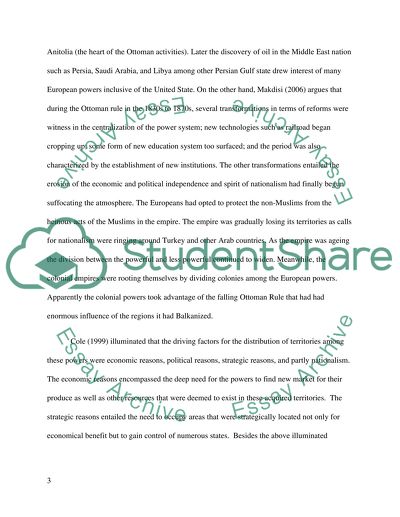Cite this document
(“Middle East Colonialism Essay Example | Topics and Well Written Essays - 1750 words”, n.d.)
Retrieved from https://studentshare.org/history/1686553-middle-east-colonialism
Retrieved from https://studentshare.org/history/1686553-middle-east-colonialism
(Middle East Colonialism Essay Example | Topics and Well Written Essays - 1750 Words)
https://studentshare.org/history/1686553-middle-east-colonialism.
https://studentshare.org/history/1686553-middle-east-colonialism.
“Middle East Colonialism Essay Example | Topics and Well Written Essays - 1750 Words”, n.d. https://studentshare.org/history/1686553-middle-east-colonialism.


